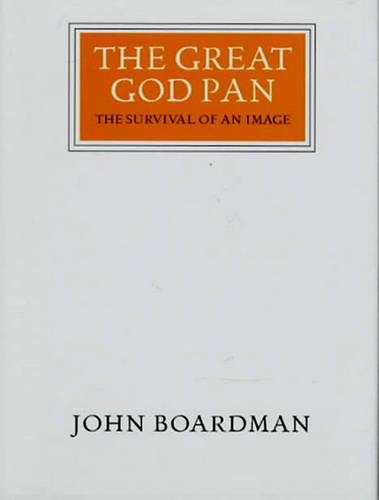
The Great God Pan: The Survival of an Image
(Hardback)
Publishing Details
The Great God Pan: The Survival of an Image
By (Author) John Boardman
Thames & Hudson Ltd
Thames & Hudson Ltd
3rd February 1998
United Kingdom
Classifications
General
Non Fiction
Religious and ceremonial art
Folklore studies / Study of myth (mythology)
704.948
Physical Properties
Hardback
48
Width 150mm, Height 210mm
250g
Description
Among the gods of classical antiquity Pan - that distinctive figure combining the physical characteristics of man and goat - is one of the few to have retained a special place in the imaginations of writers and artists, even into modern times. In this, the twenty-ninth Walter Neurath Memorial Lecture, the eminent classical scholar Sir John Boardman describes how the concept of Pan - originally a rustic deity associated with the herdsmen in southern Greece - and his familiar pipes developed and was adapted in later times. Whether viewed as a personification of country ways, equated with the excesses of Bacchic revels or treated as a demon figure, the presence of Pan was felt in the literature and art of antiquity, the mediaeval period and notably in Renaissance and later paintings. More recently, in the nineteenth and twentieth centuries, he was adopted by many Romantic artists and writers and has also served as a medium for topical caricatures. Although the ideals which Pan represented in ancient Greece and Rome may have passed into ancient history, the traditional image associated with his name remains as vivid as ever in the minds of modern man.
Author Bio
Sir John Boardman was born in 1927, and educated at Chigwell School and Magdalene College, Cambridge. He spent several years in Greece, three of them as Assistant Director of the British School of Archaeology at Athens, and he has excavated in Smyrna, Crete, Chios and Libya. For four years he was an Assistant Keeper in the Ashmolean Museum, Oxford, and he subsequently became Reader in Classical Archaeology and Fellow of Merton College, Oxford. He is now Lincoln Professor Emeritus of Classical Archaeology and Art in Oxford, and a Fellow of the British Academy, from whom he received the Kenyon Medal in 1995. He was awarded the Onassis Prize for Humanities in 2009. Professor Boardman has written widely on the art and archaeology of Ancient Greece.
